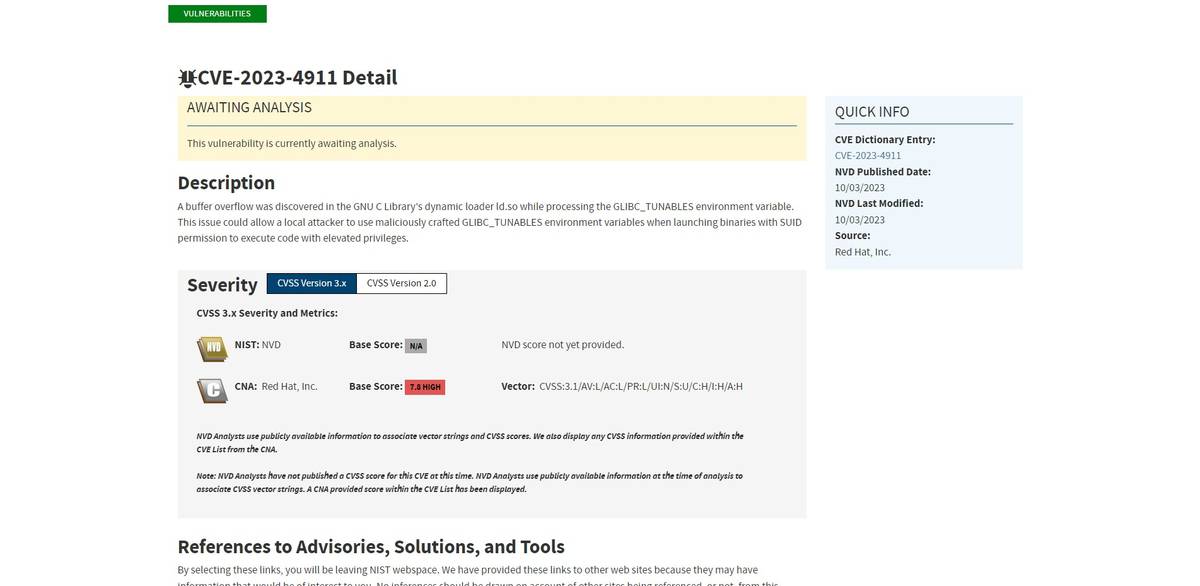A brand new and probably devastating Linux vulnerability has surfaced, aptly named ”Looney Tunables”. This safety flaw poses a major risk to Linux methods, because it permits native attackers to realize coveted root privileges by exploiting a vulnerability throughout the GNU C Library’s ld.so dynamic loader.
On the coronary heart of most Linux-based methods lies the GNU C Library, or glibc, a essential part chargeable for offering important performance. This contains important system calls like open, malloc, printf, and exit, integral for the sleek execution of applications. Inside glibc, the dynamic loader, ld.so, performs a pivotal function in making ready and executing applications on Linux methods using glibc.
CVE-2023-4911 or the ”Looney Tunables” impacts GNU C Library and poses a severe risk to Linux customers.

What’s ”Looney Tunables”?
The ”Looney Tunables” vulnerability, recognized as CVE-2023-4911, was delivered to mild by the diligent work of the Qualys Risk Analysis Unit. It first appeared in April 2021, launched with the discharge of glibc 2.34. This vulnerability originates from a commit geared toward fixing SXID_ERASE habits in setuid applications.
Saeed Abbasi, Product Supervisor at Qualys’ Risk Analysis Unit, emphasizes the gravity of this discovery. Profitable exploitation of ”Looney Tunables” grants attackers full root privileges, a situation that has been demonstrated on main Linux distributions like Fedora, Ubuntu, and Debian.
The convenience with which this buffer overflow vulnerability could be weaponized underscores the potential for different analysis groups to develop and launch their exploits, amplifying the danger throughout Linux distributions.
The ”Looney Tunables” vulnerability just isn’t an remoted incident too. In recent times, Qualys researchers have uncovered different high-severity Linux safety flaws, enabling attackers to achieve root privileges throughout the default configurations of many Linux distributions.
These embody vulnerabilities in:
- Polkit’s pkexec part (dubbed PwnKit)
- Kernel’s filesystem layer (dubbed Sequoia)
- Sudo Unix program (aka Baron Samedit)
Learn additionally: Google confirms CVE-2023-5129 is the hidden risk in Libwebp.
Do not waste any time
System directors are urged to prioritize patching as a matter of utmost significance. The vulnerability is triggered throughout the processing of the GLIBC_TUNABLES atmosphere variable on default installations of Debian 12 and 13, Ubuntu 22.04 and 23.04, in addition to Fedora 37 and 38. Alpine Linux, which employs musl libc, stays unaffected. Attackers with minimal privileges can exploit this high-severity vulnerability, and it doesn’t necessitate consumer interplay.
Featured picture credit score: kjpargeter on Freepik.
Thanks for studying..




